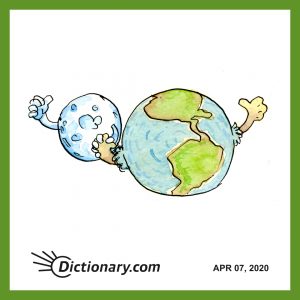Word of the Day
force majeure
noun
Law.
an unexpected and disruptive event that may operate to excuse a party from a contract.
More about force majeure
Force majeure, “superior force,” is a legal term in commercial and contract law for an unexpected, disruptive event that may excuse one party or both parties from a contract. The force majeure may be limited to what some jurisdictions term “acts of God,” such as floods, hurricanes, earthquakes, tornadoes, etc. The force majeure may also be broader in scope, including manmade events such as strikes, riots, crime, or other social unrest. Force majeure is unnaturalized in English; even the pronunciation of majeure is at least partly Frenchified. Force comes from Old French force, from Vulgar Latin fortia, a singular feminine noun use of the neuter plural adjective fortia “strong, robust (things),” from the adjective fortis, forte. Many Latin neuter plural nouns and adjectives, which end in –a, become in the Romance languages feminine collective singular nouns, also ending in –a: for instance, the Latin neuter plural gaudia “joys, delights” (singular gaudium) becomes joie in French and gioia in Italian, both feminine singular nouns. Majeure is the normal French development of Latin major– (the inflectional stem of major, majus “greater”). Force majeure first appears in print in A digest of the civil laws now in force in the territory of Orleans…. (1803)–all of the texts, however, are in French. The first appearance of force majeure in English is in Questions and answers on law: Alphabetically arranged, with references to the most approved authorities, Volume 2 (1841).
how is force majeure used?
What’s more, decisions about whether coronavirus qualifies as a force majeure event will affect entire supply chains, causing a ripple-down effect—one broken obligation, or invocation of the clause, can domino into many others down the line.
All tickets have a force majeure clause, which might get organizers off the hook of paying refunds if the coronavirus is deemed to be “beyond Tokyo 2020’s reasonable control.”
force majeure


chyron
noun
a text-based graphic overlay displayed at the bottom of a television screen or film frame, as closed captioning or the crawl of a newscast.
More about chyron
Chyron is an altered spelling of earlier Chiron, the name of an electronic graphics platform developed by Systems Resource Corporation, later known as Chyron Corporation. In Greek mythology, Chiron is the name of a wise and beneficent centaur and teacher of Achilles, Asclepius, and others. Chyron entered English in the second half of the 20th century.
how is chyron used?
A good chyron demonstrates sound judgment, clarity, and wit. But the best chyrons are those that accompany segments that demonstrate the same things.
On television, scientists, journalists and chyrons keep warning us that the most important, civic-minded thing to do in the midst of the covid-19 pandemic is to stay away from other people.
chyron


perigee
noun
Astronomy.
the point in the orbit of a heavenly body, especially the moon, or of an artificial satellite at which it is nearest to the earth.
More about perigee
Perigee, “the point in the orbit of a heavenly body, especially the moon or an artificial satellite, at which it is nearest to the earth,” comes via French périgée from the New Latin noun perigēum, perigaeum, from the Greek adjective perígeios, a term in Stoic philosophy meaning “surrounding the earth,” and as an astronomical term, “near the earth (e.g., the moon).” The noun plus adjective phrase perígeion semeîon (“sign, signal”) means “the perigee”; the phrase is also shortened to perígeion, a noun use of the neuter adjective. The Greek preposition and prefix perí, peri– means “around, surrounding”; the combining form –geios is a derivative of the noun gê “earth.” Perigee entered English at the end of the 16th century.

how is perigee used?
The phenomenon, in which a full moon appears at its closest point in its orbit around the Earth, known as perigee, is colloquially called a “supermoon.”
The moon’s distance varies within its orbit. At its apogee, it is 252,088 miles (405,696 km) from Earth. At its perigee, it is a closer 225,623 miles (363,104 kilometers).
perigee





